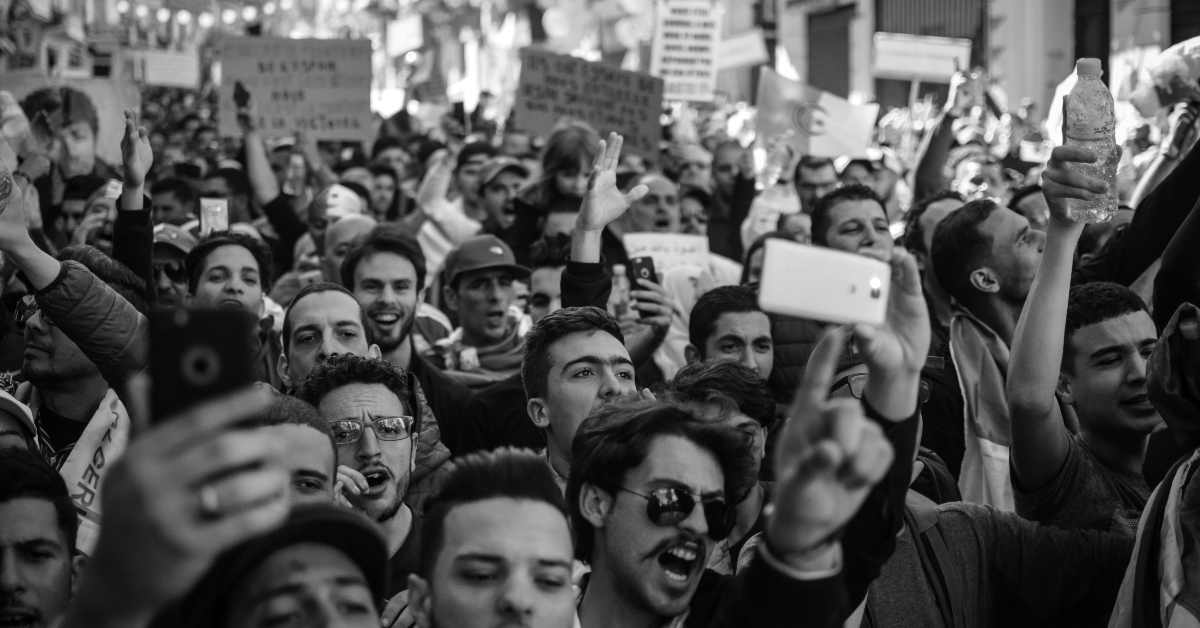
We spoke with Professor Errol Mendes to get an overview of the demonstrations that are currently taking place in several countries around the world. He is available to answer questions from the media.
In recent weeks and months, massive protests have erupted all over the globe. Chile, Lebanon, Venezuela, Iraq, Hong Kong, Ecuador, Bolivia, Ethiopia, Haiti, France and other countries have seen large-scale demonstrations where tens of thousands of citizens took to the street to make their voices heard.
According to Errol Mendes, Professor at uOttawa’s Faculty of Law, all these seemingly disconnected situations are united by a common theme. Even though some of the protests were ignited by apparently innocuous government decisions, such as a public transit price hike in Chile and new taxes on gasoline, tobacco, and WhatsApp in Lebanon, there are deeper and stronger undercurrents at work.
“The common thread resides in the toxic links between corruption that enables gross inequality and reinforces the abuse of power of elites who govern primarily in their own interests,” said Mendes. “When inequality reaches such a depth, even the smallest increase in the cost of living, or the smallest restrictions of freedom, can make them ‘the straw that breaks the camel’s back’ and trigger a desire to bring the entire corrupt system down.”
A double-edged sword
It is not the first time that disconnected elites have infuriated the masses by lining their pockets at the common people’s expense; 19th Century France immediately comes to mind, and if History teaches us anything about popular malcontent and mass protests, it is that they can be fickle beasts.
On the one hand, they can bring about the necessary change that will give respite to beleaguered citizens. On the other, they can breed dangerous snares and pitfalls. Political and social instability can indeed be a double-edged sword.
“Mass protest can lead to the collapse of authoritarian governments and the establishment of democracies, like we saw in Poland and Czechoslovakia at the fall of the USSR,” said Mendes. “But, sadly, they also allow demagogues and populist, who provide easy answers to very complex problems, to use racial or other scapegoats to rise and establish an illiberal society. When the mass protests in Egypt caused the overthrow of Hosni Mubarak’s government, it was replaced by an even more authoritarian government, which undermines the rule of law. This is also what we’ve seen in Hungary, Romania and even Poland.”
Fight the problem at its root
How, then, can such authoritarian shifts be prevented? How, then, can these protesters, who for the most part fight for principled purposes, manage to get the reforms they are asking for? According to Mendes, there is only one way: fight the problem at its root.
“The most urgent task of the best minds in the world, especially in universities such as ours, is to try to figure out how to deal with the evils of massive inequality and its links to corruption, abuse of power and human rights violations,” said Mendes. “Reform movements need to understand and strategize how to put in place important and complex reforms that are needed to prevent corruption, abuse of power. It may not happen overnight. Indeed, it may take years if not decades of persistent actions on these needed reforms.”
In some countries, movements are already starting to challenge the main architects of this massive inequality problem. Many on the left assert that those that have promoted neo-liberal policies, in national and international institutions, are the main culprits of massive inequality and corruption.
“We are seeing this trend in the United-States, where leading democratic presidential hopefuls put forward policies seeking to regulate banks and lessen the influence of private wealth and capital in many ways, from campaign finance reforms to redistributive taxation,” concluded Mendes. “It is time to go beyond ideological posturing and focus on how to reform the very policies and institutions that have produced the inequality, and promoted corruption and abuse of power. A persistent focus on the policies, organizations and institutions that promote the kind of inclusive growth that benefits the majority of society, while strengthening anti-corruption agencies, could be the best way to start addressing the root causes of the mass protests we are seeing around the world.”

Errol Mendes
Full professor
Faculty of Law - Common Law
Office: 613-562-5890
[email protected]
